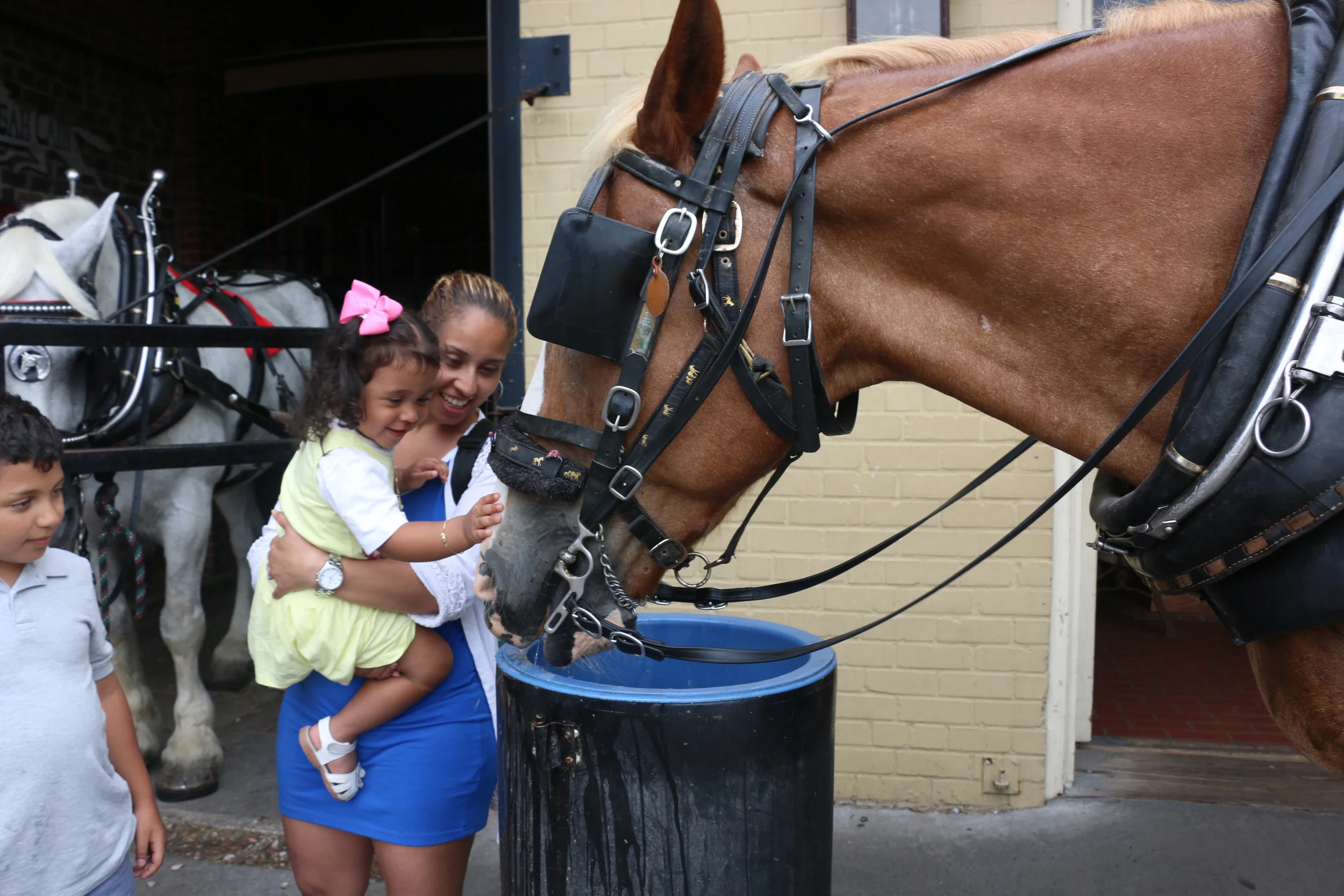Charleston CARES Standards
Setting the gold standard for excellency in working animal welfare
Horses First
We put the horse first. This should be the guiding principle in the decision making process for the entire carriage industry. We are committed to responsible training techniques for both equines and carriage drivers. Our owners and caregivers know and respect our horse’s abilities and limits and are educated on the City’s laws and ordinances put in place to protect the animals.
Horse Care in the City
Charleston CARES is committed to the responsible, humane, and ethical use of working horses in an urban environment.
Charleston CARES supports and upholds the federal, state, and local animal protection laws. Horses and mules engaged in these activities require that special working and living conditions and precautions be taken for their safety and well-being.
Exceeding Standards
Provisions concerning work hours, workloads and living conditions, standards of driver training, and passenger safety can be found in the City of Charleston’s Municode and should not only be adhered to but exceeded to ensure the utmost protection for working equines.
Horse Health
To ensure the health and welfare of horses and mules, they should be examined at least bi-annually by competent equine veterinarians for body condition, freedom from lameness and disease, and appropriateness of living conditions and transport, with all findings recorded. Owners and caregivers of working horses should have a professional relationship with an equine veterinarian that can respond appropriately to all emergencies.
Temperature & Weather
Members agree to alert others if they hear of dangerous weather conditions.
Animal body temperatures are taken before every tour regardless of the weather.
Standardized temperature logs are used among all CARES members.
Continuing Education
In order to reduce injuries and improve the health of our horses we constantly review, evaluate, and improve our standards, rules, regulations, policies, and practices.
CARES members host quarterly safety meetings for continued education of carriage industry employees.
We want to educate the general public and other members of our industry that are interested in learning more about safer environments for working equines.
Reporting Incidents
All accidents and injuries should be documented internally and reported to the department of livability and tourism in order to ensure a safer environment for all working equines.
Whenever we are made aware of any equine cruelty or non-compliance to city regulations, we will report the incident immediately to the Department of Livability and Tourism.
Carriage & Trailer Safety
All CARES members must have trailers used for transporting carriage animals certified by the DOT by May 2018.
Standardized carriage safety checklists are used among all CARES members.
Standardized forms for carriage driver and tour guide evaluations are used among all CARES members.
Transitioning
We ensure that our horses will have an opportunity to transition to additional careers, uses or activities as the need arises. When necessary, owners and veterinarians may have to consider end-of-life decisions. The welfare, safety, and dignity of the horse must continue to be the guiding principle for critical decisions.
Full Transparency
We believe in full transparency of our activities in order to ensure the public, the media, federal, state, and local officials, as well as the various segments of the horse community understand what we do, why we do it, and feel confident supporting our operations.

